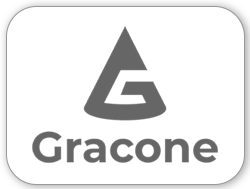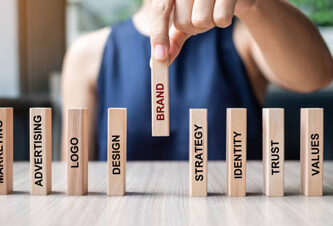
Several years ago, students in the Stanford Technology Ventures Program were given a task. Fourteen teams were given an envelope containing $5 of seed funding. They had from Wednesday afternoon until Sunday evening to come up with a plan to grow their $5. But, once they opened the envelope, each team had only 2 hours to generate revenue by spending no more than the $5 in seed money.
One of the teams came up with a plan to set up a bicycle tire refilling station on Stanford’s campus since a lot of students rode bicycles to get around. The team offered to check students’ tire pressure for free. If the air pressure was low, they charged $1 to add air using a portable hand pump. They were doing OK with their business venture. A few students stopped by to get their tires checked. And quite a number of them gladly forked over $1 to get air added to their tires.
After about an hour, the team decided to try a different approach. The team put out a jar asking for donations. They continued to offer the free air pressure check. But, instead of charging $1 to top off the air in the bicycle tire, they provided that service for free too.
Then, a funny thing happened. People who stopped by started donating money. Lots of money. Way more than $1 per person, on average. And they donated money whether the tire check showed that they needed air or not.
All human societies subscribe to the principle that we are obligated to repay favors and gifts.
It doesn’t make sense, does it? Why would people pay money for a free service?
It’s because of the principle of reciprocity. Reciprocity in social psychology refers to responding to a positive action with another positive action—rewarding kind actions. Or to state it another way, we feel obligated to repay favors and gifts. Once the bicycle owners received the tire pressure check, they felt indebted to the team that provided the free service.
In Influence: The Psychology of Persuasion, Robert Cialdini discusses the concept of reciprocity. He writes that we are hard-wired to respond positively to a gift, even if we didn’t ask for it, or even want it. We automatically feel indebted to the giver, regardless.
Reciprocity is not a new concept, nor is it unique to college campuses. All human societies subscribe to the principle that we are obligated to repay favors and gifts. If a friend offers to drive you to work because your car is in the shop, then chances are that you will likely feel an obligation to return the favor.
Marketers have used the principle of reciprocity for decades because it works!
Marketers have used the principle of reciprocity for decades. The children’s charity, March of Dimes, has sent out direct mail pieces for years with a dime showing through a transparent window in the envelope. Why? Because it works! Likewise, you’ve no doubt received mailers from other charities containing free calendars or personalized address labels. The charities’ use of the principle of reciprocity is a great illustration of the fact that reciprocity often results in exchanges of completely unequal value. That little dime mailer returns about $20 million annually to the March of Dimes.
It’s not just charities that use reciprocity in their marketing strategy. Go to any large grocery store on a Saturday afternoon. You’ll likely see several people in aprons handing out free samples of chicken strips, slices of pizza, and other snack items. Sure, the product manufacturer wants you to sample his product in the hopes that you’ll like it and buy a box of it, but it goes deeper than that. The principle of reciprocity is at work here. Most of us will feel some bit of obligation to buy that box of frozen pizza from that sweet lady because she gave us something of value. Does every person buy a box of pizza after taking a sample? No, of course not. Your sense of obligation to return a favor doesn’t always outweigh other considerations, but sometimes it does.
To realize the benefits of reciprocity, you must offer free PDH events.
The principle of reciprocity is a key element in PDH marketing. To realize the benefits of reciprocity, you must offer free PDH events. Sure, you can charge a fee for your webinar, but in doing so, you will limit the reach of your webinar. And those who do pay money to attend your webinar will not feel indebted to you like they would if you provided the webinar for free. The value realized from the larger reach and the goodwill that you create with a free webinar far outweighs the little bit of cash you could generate by selling your webinars to engineers.
OK, we’ve established that free is good, but there’s more to reciprocity than simply providing something for free. The thing you provide needs to have real benefit to the recipient if you want to truly create goodwill. The old adage “It’s the thought that counts” doesn’t apply here. A mouse pad with your company logo on it is not likely to be perceived by the engineer as a highly cherished gift.
PDH marketing provides two things that engineers truly value: Knowledge and PDH credits
To reap the full benefits of reciprocity, you must provide something of real value to the engineer. With some effort and preparation, PDH marketing can provide two things that engineers truly value: Knowledge and PDH credits.
Going back to the Stanford Technology Ventures Program story, when the team saw how much money people were donating, they thought at first that perhaps they were taking advantage of the students, but then they realized that this really was a valuable service they were providing on campus. The students were not being taken advantage of. They freely donated money because of a genuine appreciation for the service provided.
Likewise, professional engineers who attend your webinar or lunch & learn will be appreciative of the knowledge they gain and the PDH credit they earn.


